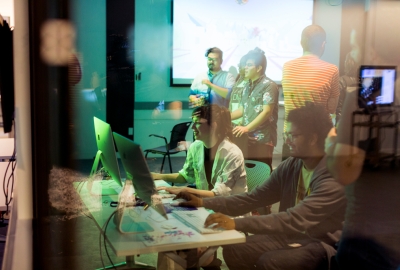Course emphasizes concert promotion & facilities management. Content to include large venues & club outlets, box office & crowd management, labor relations, production techniques (i.e. sets, lights, sound, costumes, etc.), special events, tour planning & coordination, contracts & riders. Case histories to display investment capital pursuits, administration/staffing, market identification, objectives, sequencing & strategies, budgeting, & break-even from an entrepreneurial perspective.
Course #
MPAMB-GE 2105
Credits
3
Department
Music and Performing Arts Professions


